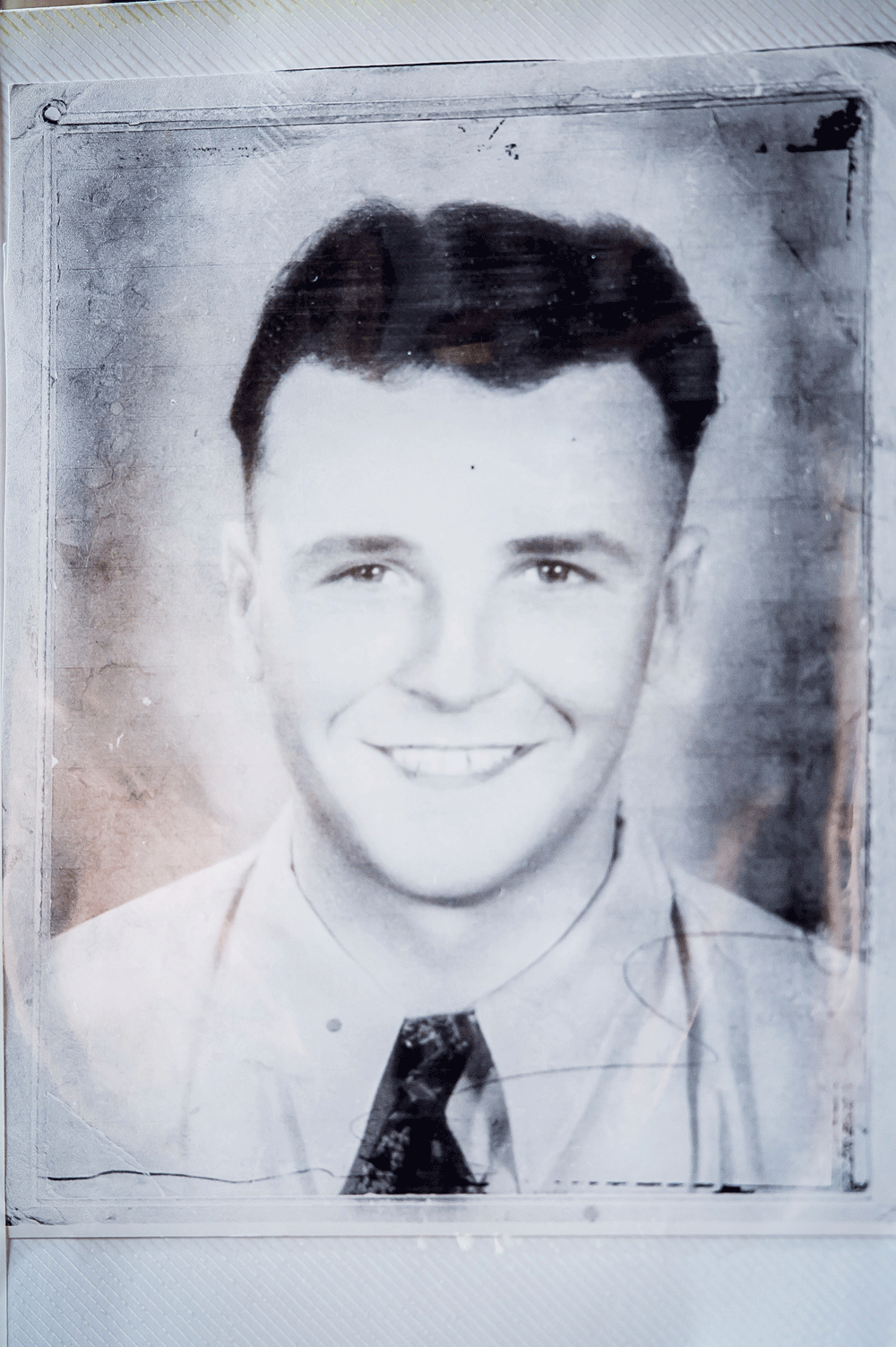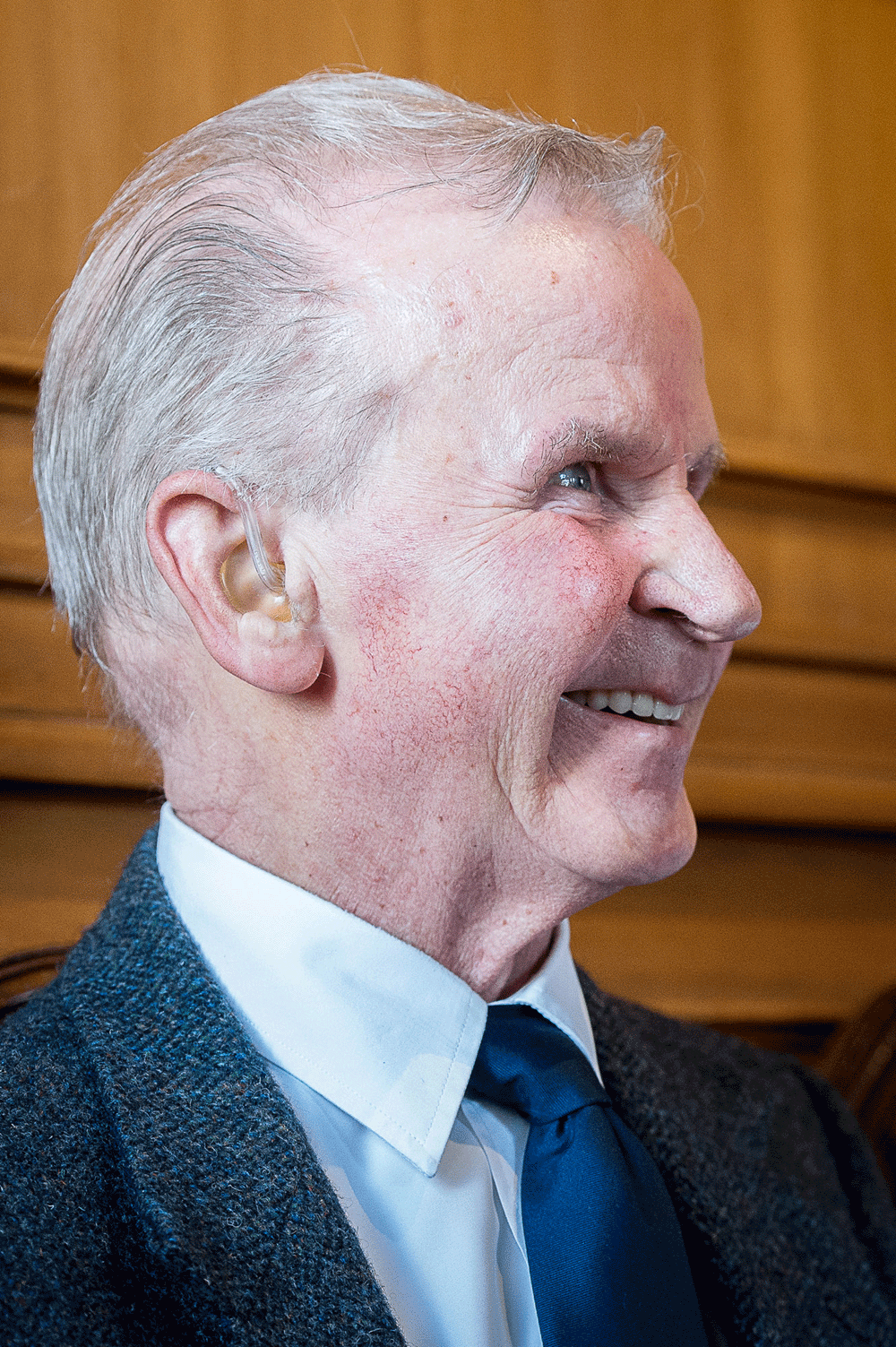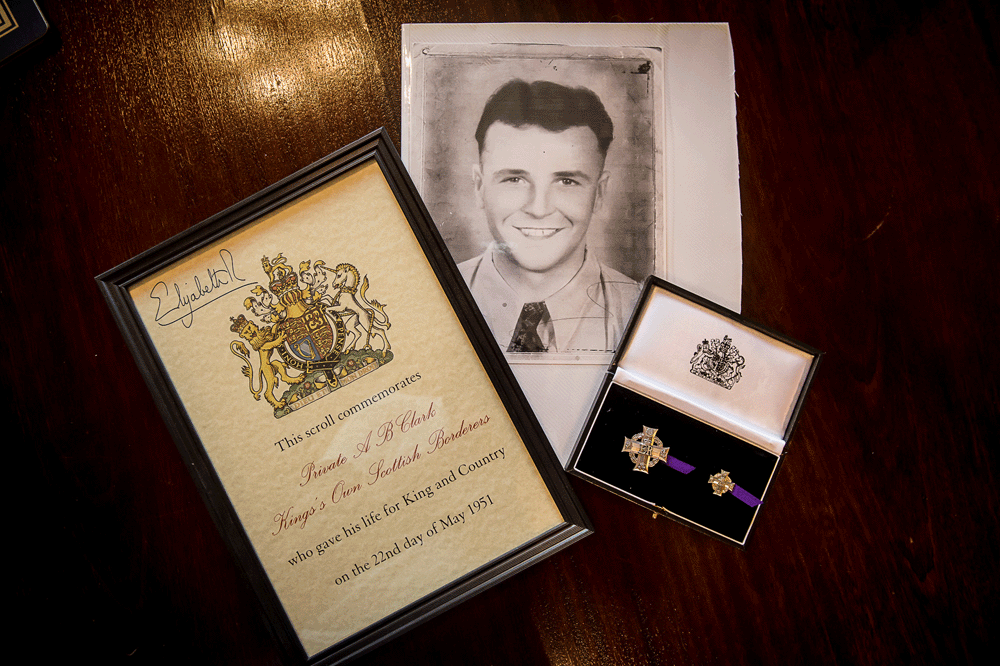THE tragic death of a young Scottish soldier in the Korean War has been officially recognised by the Queen – 65 years after he fell in action.
Archie Buchanan Clark was just 19 when he was called up for national service and only 20 when he died in a firefight with the enemy.
Yesterday (Wed), in a moving ceremony in Edinburgh, the Elizabeth Cross was presented to Private Clark’s family in recognition of his sacrifice.
The medal was handed to Private Clark’s brother, Roy. The 80-year-old, who was just 14 when his big brother went off to war, said they were “overwhelmed” by the award.
Roy, who grew up with his brother in Armadale, West Lothian, and still lives there, said Private Clark had been very proud to serve his country.

But he added that his death, at Kumgong on May 22, 1951, had “destroyed” their mother.
Roy said: “This is a great day, we’re really proud to receive this medal. It’s overwhelming.
“Archie was older than me, he was 19 when he was called up and I was 14. At the time, he was similar to all young men, he was very proud to be going.”
He added: “My mother particularly was absolutely destroyed by his death, she grieved for five years.”
Roy said he went against his mother’s wishes and did national service himself even though the death in action of his brother gave him automatic exemption.
“My mother was so upset, she tried to stop me completing national service,” he said. “I could have been let off because Archie had died, but I wanted to go, I was excited, it was excitement after my apprenticeship.”
Approximately 200 of the 1,000 British troops killed in the Korean War were doing national service, scrapped in 1960, and had little or no choice about going on active service.

“I don’t think we should have had national service for Korea,” said Roy, adding that was his personal opinion rather than that of his family.
Private Clark completed a plastering apprenticeship after school and worked for a building firm in the town.
His call-up to the forces was the first time he had been away from his family. His enlistment interview papers noted that his hobbies included billiards, dancing, gardening and cinema, with football his main interest.
After completing basic training, Private Clark joined the King’s Own Scottish Borderers (KOSB) and was sent to Hong Kong before going to Korea.
Presenting the Elizabeth Cross on behalf of the Queen, Edinburgh’s Lord Lieutenant Donald Wilson said the contribution of Scottish troops to the war in Korea has often been ignored.
He said: “It is an honour to bestow Archie’s brother and extended family with a tangible recognition of his bravery.
“The Elizabeth Cross provides a lasting recognition of his National Service and the loss felt by those he left behind.

“The contribution of Scottish troops during the Korean War is all too often overlooked, which makes honouring soldiers like Archie and remembering their sacrifice even more important.”
Major Lee Shearer, speaking on behalf of the British Army, said: “This young man served his nation and paid the ultimate sacrifice.
“Our country owes Private Clark and his family a debt of gratitude, this presentation will mean a great deal to those Private Clark left behind whilst protecting our way of life.”
“As a member of the armed forces, I feel humbled and privileged to have been part of this ceremony.”
In their official statement the Clark family said: “Archie…is and will always be missed. This medal and scroll will be passed down through the family, who will always have a reminder of the sacrifice archive and all his comrades made.”
The Korean War, which lasted from 1950-1953, began when rebels in the north the country, supported by China and the Soviet Union, invaded the south. The United Nations came to the defence of South Korea, with Britain sending over 14,000 troops to the region.
Although an armistice agreement was agreed in 1953, no final peaceful settlement has been agreed and Korea remains divided.
It has been referred to in Britain and America as “The Forgotten War” because of the lack of public attention it has received in the mainstream media.

